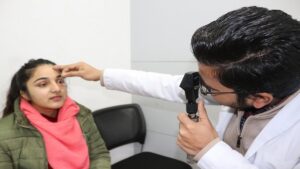
Do you suffer from chronic diarrhea? If so, you are not alone. Over 10% of people in the United States experience chronic diarrhea, making it a very common health issue. While it can be embarrassing to talk about, chronic diarrhea can have serious implications for your health and well-being. In this blog post, we will discuss the truth about the problem including what causes it and potential solutions.
Let’s Dive In To Uncover The Truth About Chronic Diarrhea:
Causes Of Chronic Diarrhea
Chronic diarrhea is a long-term condition that can have a variety of causes. It is characterized by frequent, loose, or watery stools lasting for several weeks or months.
Common Causes Include:
Irritable Bowel Syndrome (IBS):
This is a common disorder that can cause abdominal pain, and bloating. The exact cause of IBS is not known, but it is thought to be related to the interaction between the brain and gut.
Inflammatory Bowel Disease (IBD):
This includes Crohn’s disease and ulcerative colitis. These conditions involve inflammation in the digestive tract and can lead to chronic diarrhea.
Gastroenteritis:
This is an infection of the digestive system which can cause inflammation and vomiting as well as diarrhea. It is commonly caused by viruses such as rotavirus, norovirus, and adenovirus.
Celiac Disease:
This is an autoimmune disorder where the body cannot process gluten, which is found in wheat, barley, and rye. Eating gluten can trigger an immune response leading to abdominal cramps and chronic diarrhea.
Medications:
Certain medications such as antibiotics, antacids, laxatives, and blood pressure medications can cause.
Food Intolerances:
Certain food components such as lactose, fructose, and artificial sweeteners can cause when consumed in large amounts or when an individual has difficulty digesting them.
Parasites:
Parasites such as Giardia lamblia and Cryptosporidium can cause if they infect the digestive tract.
Stress:
Stress has been linked to an increase in gastrointestinal symptoms such as abdominal pain and diarrhea.
Solutions For Chronic Diarrhea
When it comes to treating chronic diarrhea, the goal is to identify the underlying cause and then work on that. Depending on the cause, there are several different treatments available.
The most common treatment is medications such as antidiarrheal drugs and probiotics. These can help stop or slow down the frequency and intensity of your diarrhea. Other medications, such as antibiotics, may also be necessary depending on the underlying cause of your diarrhea.
In addition to medications, lifestyle changes can also help manage. Eating a healthy diet and avoiding trigger foods can help reduce symptoms. Drinking plenty of fluids and avoiding alcohol can also help minimize the frequency of episodes. Exercise and stress management can also be beneficial in managing.
For some people, dietary changes are the best way to treat them. Eliminating certain foods that have been identified as triggers can help reduce symptoms. These may include high-fiber foods, dairy products, caffeine, artificial sweeteners, and processed foods.
Finally, probiotic supplements can also be beneficial in treating this problem. This help restore balance in the intestines and can help reduce the frequency of episodes. Before taking any supplements, consult with your doctor to make sure they’re secure for you to use.
Foods To Eat And Avoid:
When dealing with this condition, it is important to pay attention to what you are eating. Eating foods that are easy to digest can help reduce symptoms and make them easier to manage. Some of the best foods to eat when suffering from a problem include cooked vegetables, potatoes, bananas, applesauce, plain rice, cooked chicken, boiled eggs, and toast.
On the other hand, there are certain foods that can worsen the symptoms and should be avoided as much as possible. This includes fatty or fried foods, high-fiber foods such as beans and whole grains, dairy products, alcohol, caffeine, spicy foods, and artificial sweeteners. In addition, if you are on any type of medication for your problem, it is important to read the package insert and make sure that any food you eat does not interact with your medication.
When To See A Doctor:
If you are experiencing this, it is important to make an appointment with your doctor to discuss the issue. Your doctor may perform tests to determine the cause of your diarrhea and recommend Chronic diarrhea treatment in USA or lifestyle changes to help you manage it.
When To See A Doctor Right Away:
In Some Cases, You Should Seek Medical Attention Right Away If You Have Any Of The Following Symptoms Associated With Your Condition:
- Diarrhea lasting longer than two days.
- Unusually large amounts of diarrhea.
- Bloody, mucusy, or pustular diarrhea.
- Severe abdominal pain.
- Signs of dehydration, include dry mouth, fatigue, dark-colored urine, and dizziness.
- Weight loss.
- Rectal bleeding.
- Loss of appetite.
Your general practitioner may recommend that you see a specialist for additional testing and treatment. If necessary, your doctor may also order laboratory tests or imaging studies to diagnose your condition and recommend the best course of action.
If your condition is causing severe discomfort and interfering with your daily life, it is important to speak with your doctor to get the proper diagnosis and treatment.




